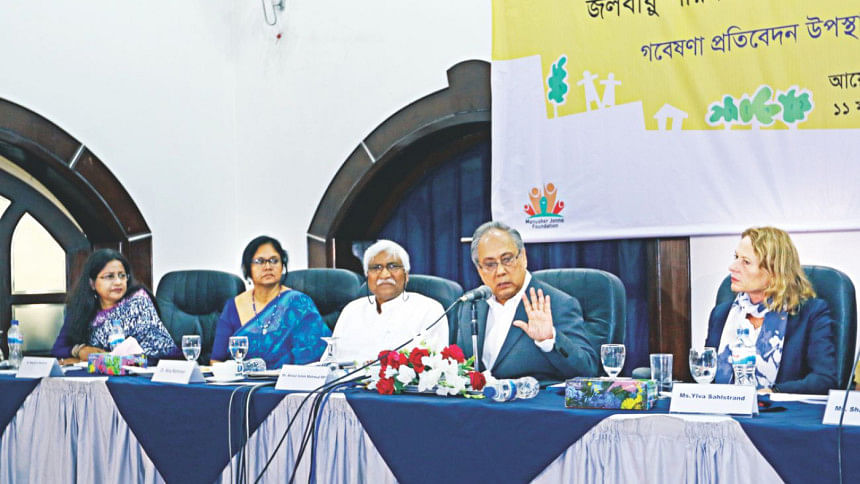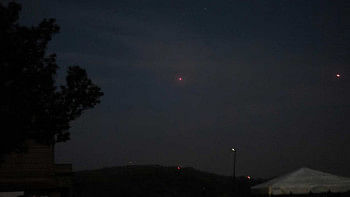Give them know-how on survival

Adverse climate condition has made people in some coastal and char (landmass emerging from riverbed) areas implement new adaptation mechanism for survival, according to a new survey report.
The report says these people, who are vulnerable to natural disasters, have introduced cultivation of tolerant types of crops. They have also started growing vegetables at household surroundings after receiving training.
However, many of the surveyed people also said they did not receive any training on such agricultural practices.
Findings of the baseline survey report on “Climate Change, Impacts and Adaptation”, which is part of a project, were disclosed yesterday at a programme in the capital's Spectra Convention Centre.
The report recommends arranging adequate training, by both government and non-government organisations, on agricultural practices that would benefit the victims of climate change.
Manusher Jonno Foundation (MJF) and Bangladesh Centre for Advanced Studies (BCAS) conducted the survey in 26 unions under 12 upazilas in coastal districts of Patuakhali, Barguna, Bagerhat, Satkhira, Bhola; hill districts of Bandarban and Rangamati; and Gaibandha, which has many chars.
As many as 1,150 households were surveyed. Many of the surveyed people blamed salinity, flood and drought -- harmful for cultivating crops.
The report says 91 percent people have mentioned that disasters affect occupation of the earning members.
The primary occupation of the household heads is related to agricultural chores with 63 percent engaged in agriculture, it says.
The report says most people eat less than required and borrow money from microcredit systems during a period of food shortage.
People in the coastal and char areas said they have access to shelter during natural disasters.
However, drinking water and its accessibility remains one of the most vital needs of the communities, which should be safe, affordable and easy to access.
There must be increased sources of drinking water in all the three zones during and after the disaster, mentions the study.
Of the studied households, 47 percent have access to deep tube-wells and 29 percent shallow ones.
Condition of access to sanitation is also poor in the areas as many people, especially in the hills, still defecate in the open.
MJF Executive Director Shaheen Anam said they have conducted the baseline survey for the project to better understand the situation in the areas.
BCAS Executive Director Atiq Rahman said union and upazila-level plans will be required to tackle the adverse climate conditions.
Speaking as the chief guest, Environment and Forests Minister Anisul Islam Mahmud said understanding climate change is important for the people of the country because of its geographic location.
The minister also said the government has taken an initiative to reconstruct 139 polders in the southern regions.
Poldering involves building large embankments around the perimeter of the islands formed between the crisscross of rivers in the delta. Inside the polders, there are also dense, natural networks of canals, and some of the large internal canals are connected to the surrounding rivers by sluice gates installed in the polder embankment.
Dilruba Haider, programme specialist of UN Women Bangladesh; Sharmind Neelormi, associate professor of economics at Jahangirnagar University; and Ylva Sahlstrand of Swedish International Development Cooperation Agency (Sida), were also present.

 For all latest news, follow The Daily Star's Google News channel.
For all latest news, follow The Daily Star's Google News channel. 



Comments